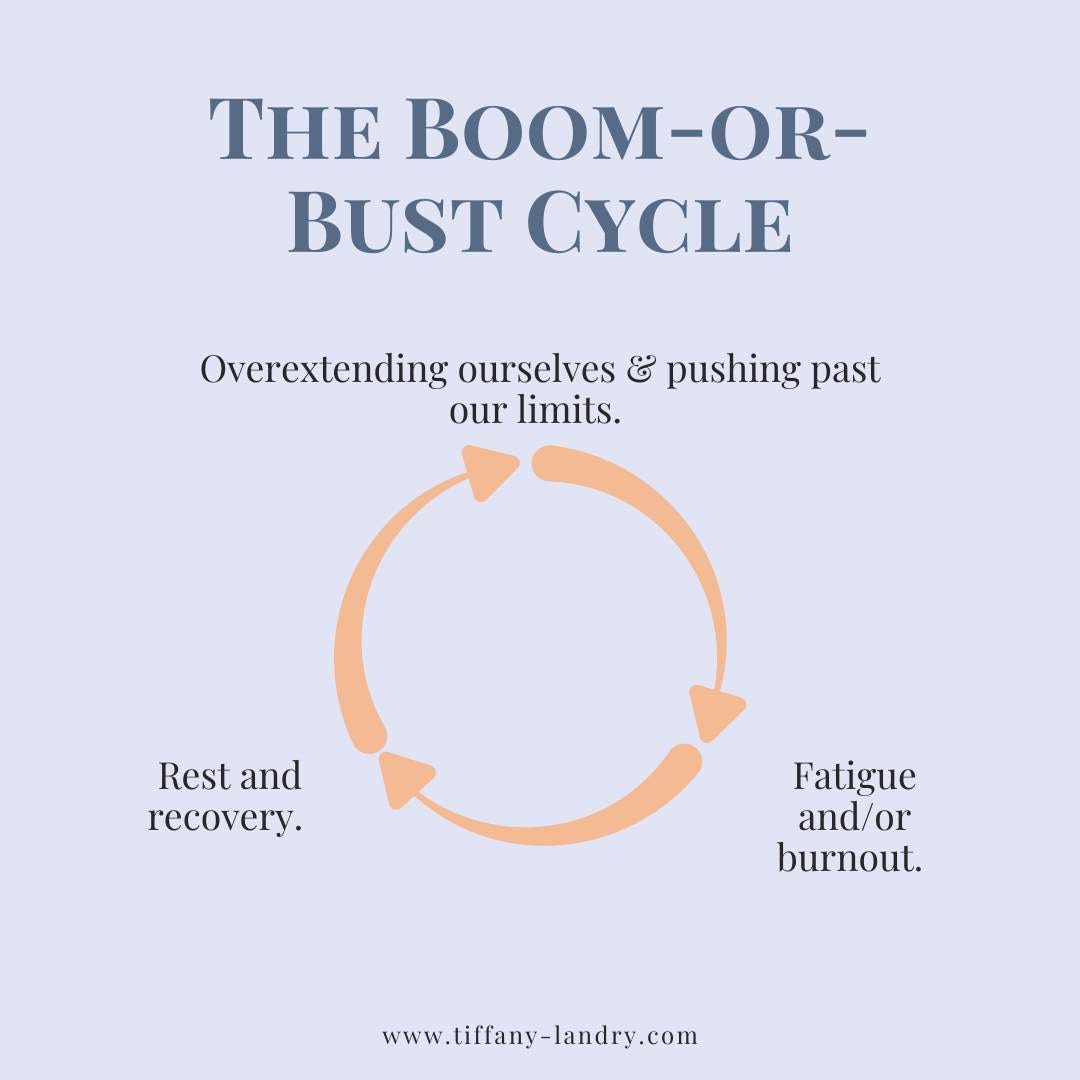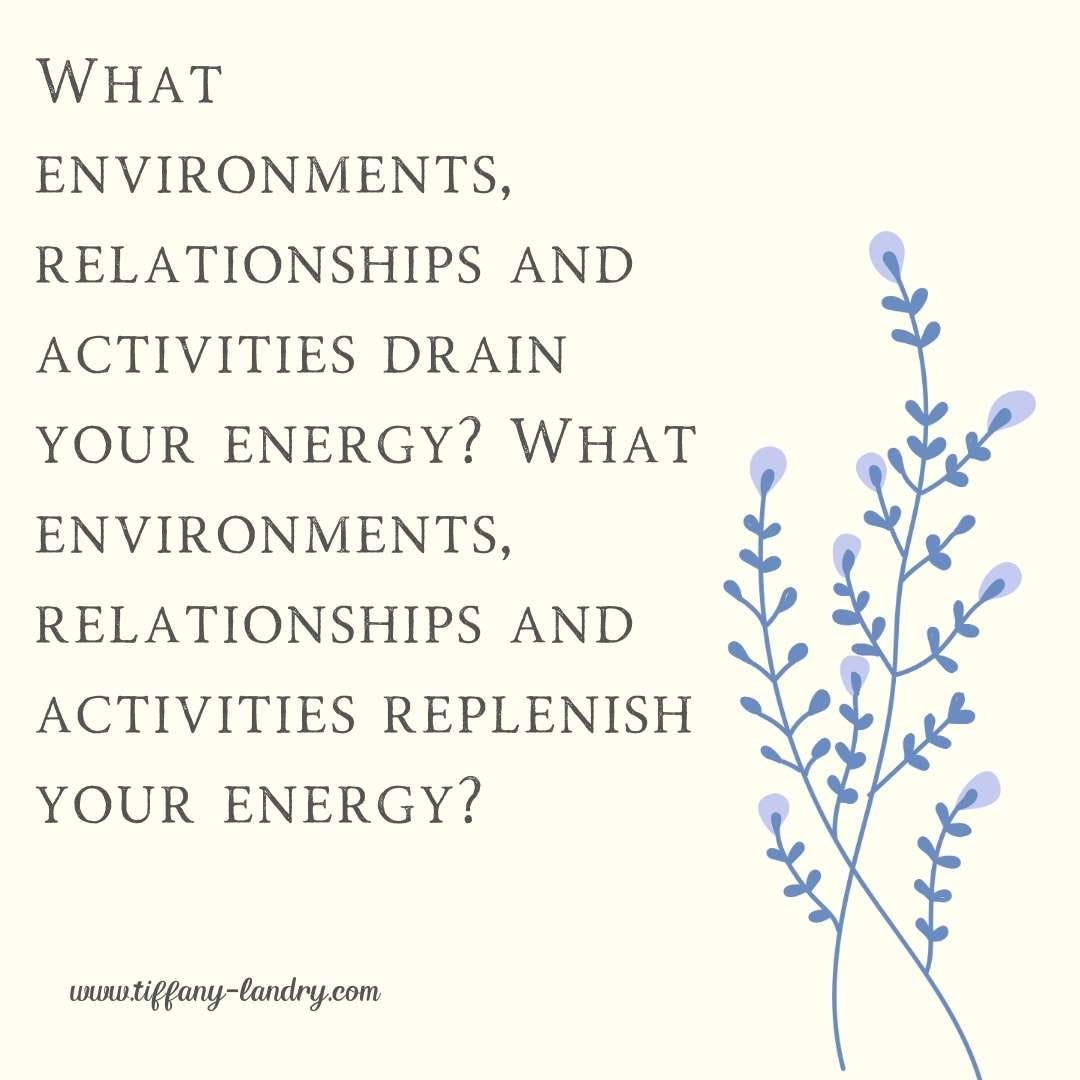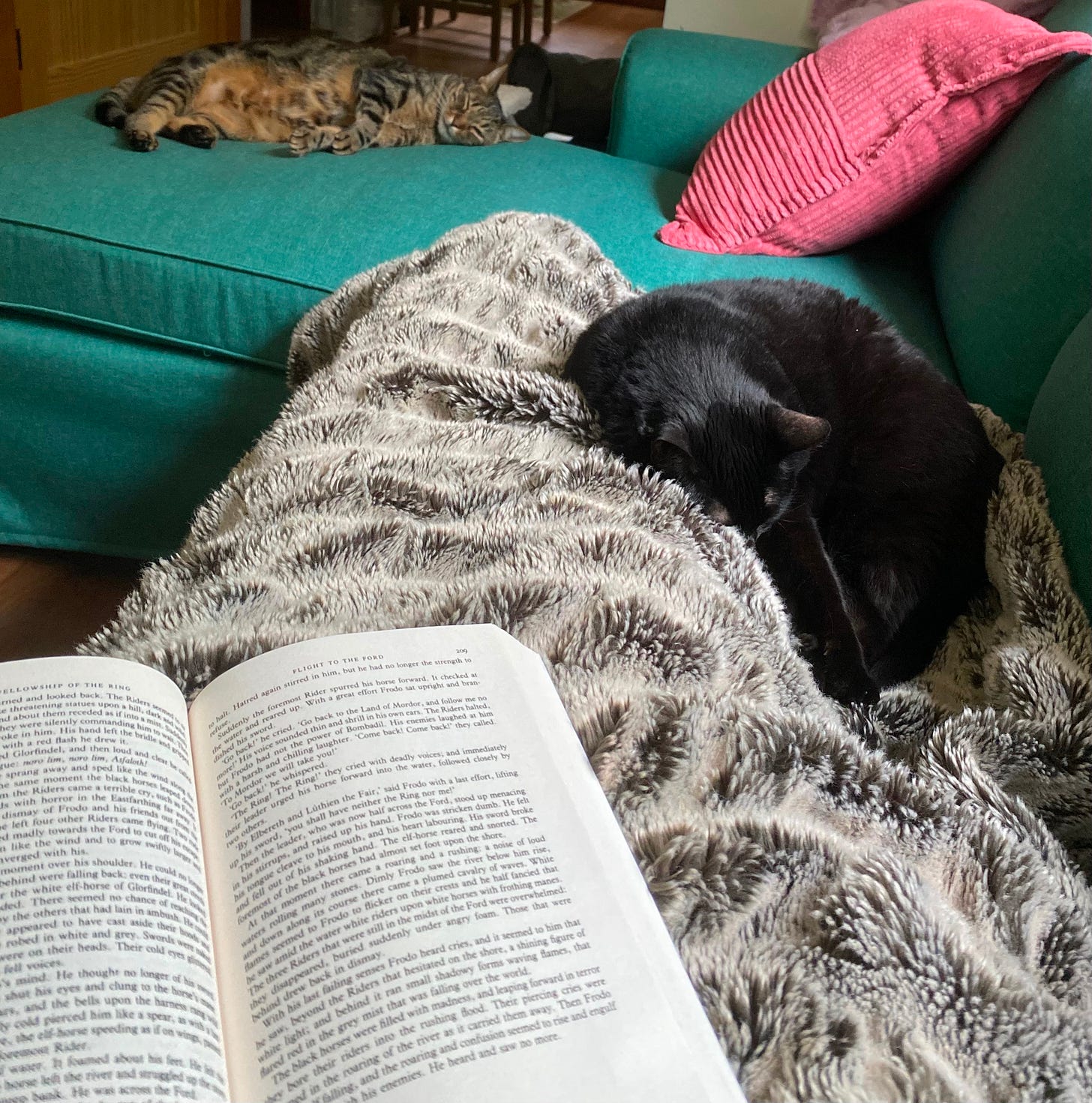Hello reader! I’m looking forward to reading today’s newsletter with you. In today’s newsletter I’ll be sharing about the process of honoring my own unique pacing and my experience being on social media as a sensory avoidant AuDHDer. I’ll also share a bit about the boom and bust cycle and why pacing systems can be supportive. I hope you enjoy this newsletter! If you’re new here, welcome! Love, Tiffany. P.S. If you subscribed to my newsletter via my website please know that I have to manually add you to this mailing list-which is why you might been added to my newsletter 2-4 weeks after you initially subscribing. I’m glad you’re here and if it doesn’t feel like a fit for you (or you don’t remember subscribing) you can always unsubscribe, absolutely no hard feelings.
The past few weeks I’ve been attempting to use social media to market my coaching business. For those new to me, I’ve written a lot about my struggles with social media and how harmful I’ve found it for my autistic self. But also capitalism is a very real thing and social media has consistently been where I’ve found the majority of my clients for my coaching offers. So I made a social media launch plan which consisted on posting on Instagram five times a week and making 3 TikTok videos 5 times a week1. The best thing I can say about this little experiment is that at first I didn’t hate it. That it wasn’t exactly intolerable. I did find some unique little side effects though, mainly being sensory overwhelmed, getting sucked into scrolling and the fact that during this two week experiment it felt like I didn’t have enough energy to write my blog posts, engage in post continuing education or read as much as I usually do.
There were some beautiful things that happened. A few previous clients wrote me some kind comments. I published a TikTok titled “Calling all rural queers” which got over 2K views and 50+ comments. So many amazing queers living in the country! A lovely sex educator shared my new workbook The Autistic Dating Guide in their stories2. But then last week I started to notice that I was feeling really sad and lonely. I’m grateful that I know enough about myself to immediately go “Oh, this is connected to being on social media.” While I am fairly isolated out here in the country and am actively looking for local friendships, when I’m off of social media I’m actually usually fairly happy. I spend more time outside, I notice how lovely the breeze on my face feels, I write and read more, in general I have more capacity to do the things I enjoy. My life feels slow, spaciousness and moves at a pace that works for me.
While I’ve previously shared a lot about the specific ways in which social media is harmful to my autistic self, what I want to focus on in this specific newsletter is pacing. In the example of social media, social media is very loud (both literally and metaphorically) and fast. It’s too much, too fast and too soon for me-which ironically is a very basic definition of trauma. But I’ve also experienced relationships (both platonic and romantic) where the pacing was too fast, as well as practitioners where the pacing just wasn’t a match. The truth is that our pacing needs matter-in healing, relationships and communication. Our pacing needs matter because our needs, wellbeing and safety matter very much.
The Boom-or-Bust Cycle
I believe that honoring your unique pacing is important for people of all neurotypes but I specifically think it’s key for us neurodivergent folks. When I work with late identified autistic clients on designing a neurodivergent affirming life something we look at is honoring their pacing needs-specifically if they are in burnout. A way we can honor our pacing is by identifying when we are experiencing a boom-or-bust cycle. The boom-or-bust cycle is a common experience for people who have a chronic health condition, are disabled or experience pain or fatigue. On days when we have good energy it feels good to accomplish things and we might feel like we have to “make up” for the times when we can’t do those things. This could look like overextending yourself, ignoring (or not being aware of) your body’s cues and pushing your body beyond it’s limits. This is then followed by a crash and having to recover.

For neurodivergent people some boom-or-bust cycles can be expected due to things like our interest based nervous systems, hyper focus and our all of nothing way of thinking. But it’s important to note that it can become problematic when this cycle leads to burnout. Dr. Megan Neff of Neurodivergent Insights talks about how when we constantly push our bodies beyond their limits, it takes longer to recover each time we go through a boom-or-bust cycle and our burnout can deepen3. If you’ve identified that you’ve been doing the boom-or-bust cycle for some time, it might be supportive to validate that it probably makes sense. There are specific reasons why neurodivergent people are more vulnerable to the boom-or-bust cycle, such as hyper-focus, people pleasing tendencies (which can be a way neurodivergent people mask), internalized ableism and interoception issues. We can also stop getting into the boom-or-bust cycle by:
unpacking internalized ableism.
identifying & sharing your boundaries.
supportive rest & sleeping habits.
Pacing systems!
Pacing systems aka “Getting to know & honoring your energy”
Pacing systems are ways we can map out our energy and identify which activities drain our energy and which activities replenish our energy. It might be supportive to learn about Spoon Theory, get to know your own neurodivergent spoon drawer or explore the traffic light pacing system4. It can be incredibly helpful to identify:
What environments, relationships and activities drain your energy?
What environments, relationships and activities replenish your energy?
We want to look at our spoons or energy with a neurodivergent lens. You might not have the social spoons to go out with your friends but you have the spoons to spend time researching your special interests. Amazing, so great to know that! As a personal example I know that I have very few social spoons so after socializing I make sure to factor in time to rest, replenish my spoons and do things that are restorative for me. The more self knowledge you have on your energy levels and capacity, the more you can identify your needs, share boundaries and get out of the boom-or-bust cycle.

Permission to explore.
I still don’t have an answer to how to market off of social media. I only know that the most loving thing for me continues to be to give myself permission to be human, make mistakes and continue to get clarity on what feels right for me. Something I think that is really helpful is to frame new habits, accommodations and new ways of being as explorations. We don’t need to get it right at first, we get to explore what feels supportive and accessible. Different stages of our life might also mean that something that used to feel supportive isn’t anymore-and that’s okay. Right now the things that feel supportive to me are:
Taking the last week off of each month. This I’ve been doing for awhile and it’s been so helpful for me and my business. On my week off I don’t do social media posts or newsletters and I don’t have client sessions. I use the time to rest, continue to learn through continuing education and just be.
Feeling into how I want to approach social media. I am considering taking another Instagram break and potentially making videos for TikTok (but pre-recording them so limit my time on the app.) But I am keen to get back to blogging :)
Sitting with if I want to offer a group learning experience or an online Zoom autistic & queer support group/community hang. If you’re potentially interested in this, please let me know if the comments!
Committing to slowness and time in nature.
Actually, this doesn’t work for me.
Sometimes the most loving thing we can do is to name “actually, this doesn’t work for me” or “ohh, this actually really doesn’t feel good to me.” I think it can be so powerful when we both sit with the question of “is this a supportive thing for me?” and when we name the things that simply aren’t supportive. These can be big or small things. I personally believe that small boundaries can be just as important as big ones. For example: my boundary with my family that I can’t do spur of the moment plans or unplanned visits helps prevent me going into shutdowns. That’s a BIG impact! When I was experiencing a sensory emergency this Spring I simply let my friends know that I didn’t the capacity to text and was happy to arrange phone call dates with them. That was another small boundary that had a huge impact. A commitment to going slow in my life has offered big benefits as well.
What are some small or big things that have a small or big impact on your life?

Additional support & offerings:
If you’re enjoying this newsletter, you might enjoy diving deeper into some of the support that I offer in my queer and autistic business.
I am currently enrolling clients in my 5 month program The Autistic Mentorship. It includes 3 sessions a month, bonus support and neurodivergent workbooks sent to you as needed. It’s a combination of autistic support & coaching with somatic trauma resolution support.
Curious about what coaching together would feel like? You can apply to my Intro Coaching Package: three 90 minute sessions with detailed email recaps.
Fancy a workbook? You can buy my 55 page workbook The Autistic Dating Guide or my 52 page workbook The Autistic Burnout Recovery Guide.
Want free stuff? Browse my 40+ blog posts on my website and grab a free workbook in my digital library.
Thank you for being here, I appreciate you.
Please feel free to share any reflections, shares or questions in the comments. It brings me a lot of joy to connect with you in the comments. If you share, repost or like this newsletter-thank you! That brings a smile to my face and helps support my work.
I am wishing you a restful and supportive Sunday! I hope you eat something delicious and get to do something that gives you joy.
Warmly,
Disclaimer: The information contained in this post is for general educational and informational purposes only and should not be construed as medical or mental health advice. The information provided is not a substitute for advice from a qualified professional who is aware of the facts and circumstances of your individual situation.
A few things to note: 1.) I framed this an experiment. Could I do this without being incredibly sensory overloaded? 2.) I absolutely did not meet this demanding schedule. For context I also was directly posting to the apps (versus using an automatic social media posting app which I’ve done in the past.) I also started allowing DMs on Instagram and allowed comments on my TikToks. 3.) I resourced before and after being on social media which I actually found really helpful.
For sex positive sex education & coming out later in life support consider checking out Eva Bloom and their supportive resources. If you’re on social media, you might really love their content-especially if you came out later in life.
The information shared in this newsletter on the boom-or-bust cycle comes from Dr. Megan Neff’s amazing workbook on Spoon Theory. You can learn more about that workbook here. I’m so grateful to have learned about pacing systems from Dr. Megan Neff and I hope you’ll find the information supportive too!
Unfortunately if I explained each of these pacing systems this newsletter would be VERY long. I invite you to check out this blog post for an overview of pacing systems.





So valuable, thank you! I always take off the 3 days of my period as that feels like a natural pause for me... and I am inspired to hear you give yourself a whole week off at the end of the month. I wonder what that would be like. I'm AuDHD so I worry that the ADHD part would just get too restless!
Thank you for this article and reminding me of the importance of setting boundaries and preserving spoons when it comes to social media.
I too struggle with how to market myself if NOT using socials - but I increasingly find them draining and putting me into a bust cycle.
I find Notes to be a much happier and more supportive place - so I’m spending some time with how that feels.
I so appreciated this piece!